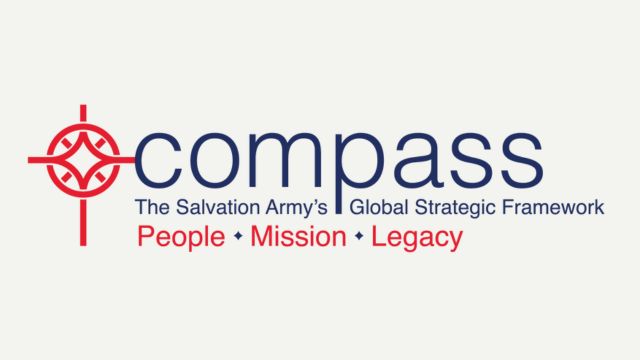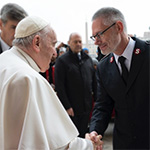 More than 1,600 delegates from Ghana, Togo, Nigeria, Liberia, Sierra Leone, Guinea, Mali and Burkina Faso attended the conference
More than 1,600 delegates from Ghana, Togo, Nigeria, Liberia, Sierra Leone, Guinea, Mali and Burkina Faso attended the conference
Read more Reflecting on the example of Pope Francis, on his funeral mass and on his words to The Salvation Army
Reflecting on the example of Pope Francis, on his funeral mass and on his words to The Salvation Army
Read more The Salvation Army’s international leaders General Lyndon Buckingham and Commissioner Bronwyn Buckingham have travelled the length of Pakistan
The Salvation Army’s international leaders General Lyndon Buckingham and Commissioner Bronwyn Buckingham have travelled the length of Pakistan
Read more

The Salvation Army
The Salvation Army is an integral part of the Christian Church, although distinctive in government and practice.
The Army's doctrine follows the mainstream of Christian belief and its articles of faith emphasise God's saving purposes. Its objects are the advancement of the Christian religion, of education, the relief of poverty, and other charitable objects beneficial to society.
Worship
Salvation Army places of worship are Christian churches open to the community they serve and offering a warm welcome to all.
Most hold weekly worship services, usually on a Sunday. Other weekday and evening activities may include prayer groups, family events, lunch groups, youth clubs and meetings for seniors.
In your country
The Salvation Army works in 134 countries.

Quick links
 General Lyndon Buckingham
General Lyndon Buckingham
 About Us
About Us
 Our Strategy
Our Strategy
 Events
Events
 International Prayer Focus
International Prayer Focus
 Russia-Ukraine War
Russia-Ukraine War
 Salvation Books
Salvation Books
 International Leadership
International Leadership
 International Emergency Services
International Emergency Services
 International Development Services
International Development Services
 International Social Justice Commission
International Social Justice Commission
 International Women's Ministries
International Women's Ministries
 Youth and Children
Youth and Children
 Work With Us
Work With Us
 Press and Media Contacts
Press and Media Contacts





